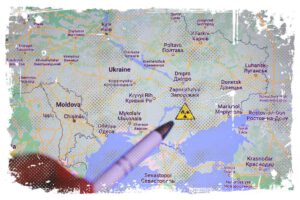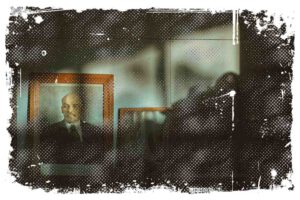It was December 11, 1941, when the Polish government declared war against Japan. As it later turned out, Japan was the only country against which Poland had declared war in the 20th century. In fact, it was a conflict that did not exist, as both countries did not have any points of contention.

On December 7, 1941, the world held its breath as the Japanese Air Force launched a surprise attack on Pearl Harbor which was the largest U.S. naval and air base in the Pacific. The next day, the United States officially entered World War II. On December 11, Polish President Wladyslaw Raczkiewicz, who was residing in London at the time, signed the act declaring war on Japan. This marked the first and only time in the 20th century that Poland declared war on another country.
In response to the Polish declaration, Japanese Prime Minister Hideki Tojo, who was later sentenced to death and hanged as a war criminal, stated that the Polish note was not recognized by Japan. He argued that the Poles had declared war on Japan under pressure from Great Britain, and that Japan had no conflict with Poland. Despite the declaration of war, there was no actual conflict between the two countries.
Polish-Japanese Relations Before the War
During the interwar period, Poland and Japan had good relations. In 1919, Japan recognized Poland’s independence as the fifth country in the world to do so. Japanese diplomats also helped return several hundred orphans from Siberia to Poland between 1920 and 1922.
↳ PRO TIP: Do you like traveling? Then before you buy any ticket or book an attraction, check if it's available in this worldwide Viator Database. You may save a lot of money and time. No need to thank me :)
In 1937, Poland opened an embassy in Tokyo, and Japan opened an embassy in Warsaw. The first ambassadors were Tadeusz Romer and Sakō Shōichi, respectively. The two countries had strong military relations, particularly in the fields of cryptology and military intelligence.
Japanese General Yamawaki Masataka, who was military attaché in Poland at the time, played a key role in strengthening cooperation between the two countries in these areas. He shared information with the Poles about events in Siberia and the Far East, and was an advocate for building relations in the field of cryptography. This cooperation was active during this period.
The Outbreak of World War II
During World War II, Poland and Japan were on opposing sides. Japan was allied with Germany and had entered into two pacts with them: the anti-Comintern Pact in 1936 and the Pact of Three in 1940. The Pact of Three targeted the Allies and aimed to gain hegemony in the world for Germany, Japan, and Italy, while also attempting to deter the United States from entering the war.
Due to pressure from Germany, Japan ended diplomatic relations with Poland on October 4, 1941. This included closing its embassy in Warsaw and asking Polish diplomats to leave Tokyo. Poland, however, remained an ally of the Allied states and was at war with Germany and the USSR as a victim of their aggression. Despite this, diplomatic relations between Poland and Japan were not completely cut off, however few months later, the two countries found themselves at war with each other.
Pearl Harbor Attack
On December 7, 1941, Japan launched a surprise attack on the American naval and air base at Pearl Harbor in Hawaii. The attack caused significant losses and a great shock to the American public. In response, U.S. President Franklin Delano Roosevelt addressed the nation the following day and declared war on Japan. Britain also declared war on Japan and its allies, including:
- Poland
- Belgium
- Netherlands
- French National Liberation Committee.
In addition, diplomatic relations were cut off with Japan and its allies, including Venezuela, Colombia, Egypt, Mexico, and Greece.
The Polish-Japanese war never escalated beyond the phase of mutual declarations. Poland did not have the military capability to attack Japan, and Japan was focused on fighting in the Pacific against the United States and did not become involved in the fighting in Europe. As a result, the war became one of the strangest conflicts of the 20th century. Please check on my other article in which I desribe the polish army capabilities. From this post you will learn how underpowered our army was.
The only hint of Polish involvement in the fighting in Asia was the dispatch of the transport ships MS “Sobieski” and SS “Pulaski” to the Indian Ocean, where they primarily transported British soldiers.
Despite the war, Polish Franciscans continued their activities in Japan. Their mission was founded in Nagasaki by Father Maximilian Kolbe and his brother Zeno, also known as Zenon Zebrowski. The Franciscans are still active today, providing assistance to orphans, the elderly, and the disabled.
The War That Never Existed
The relationship between Poland and Japan during World War II was somewhat complicated. Japan was allied with Germany, Poland’s enemy, but due to strained trust towards Berlin after the Molotov-Ribbentrop Pact, Tokyo maintained unofficial relations with the Poles.
As part of these relations, the Japanese provided Poland with information about the eastern areas of Russia. Major Jan Kowalewski, a famous Polish military man known for breaking ciphers during the Polish-Bolshevik war, also helped to organize the Japanese radio intelligence service. The Poles also received information from the Japanese about the approximate date of the German attack on the USSR, which they later passed on to the British.
In fact, it can be said that the Wehrmacht’s entry into Poland was met with sadness in Tokyo. The Polish embassy in the Japanese capital was only closed under German pressure in October 1941, and Polish diplomats were allowed to leave.
The End of the War and the Peace Treaty
Poland did not significantly contribute to the defeat of Japan in World War II. In August 1945, Japan was taken over by the Western Allied forces and the Red Army, and on September 2, Japanese officials signed an act of unconditional surrender aboard the USS “Missouri”. For the next seven years, Japan was occupied by the Allied forces, led by the United States.
Although the war ended in 1945, the issue of the Polish-Japanese war was not settled until February 8, 1957, when the Treaty on the Restoration of Normal Relations between the People’s Republic of Poland and Japan was signed in New York by Deputy Foreign Minister of the People’s Republic of Poland Jozef Winiewicz and Japanese Ambassador to the United Nations Toshikazu Kase.
Until this treaty was signed, the two countries remained technically at war but did not conduct any military actions against each other.
What Are Poland’s Current Relations with Japan?
Relations between Poland and Japan have been very good in recent years. Cooperation between the two countries significantly increased after 1989, when Poland became a fully democratic country. There have been frequent visits by representatives from both countries, including the historic visit of Their Imperial Majesties Emperor Akihito and Empress Michiko to Poland in July 2002.
In February 2015, Polish President Bronislaw Komorowski visited Japan and established a strategic partnership between the two countries, which was further strengthened during a visit by Polish Foreign Minister Witold Waszczykowski in 2017. In 2018, Japanese Foreign Minister Taro Kono visited Poland, and in 2019, on the centennial of the establishment of diplomatic relations, the Japanese heir to the throne, Prince Akishino, and Princess Kiko visited Poland. Overall, there have been many important exchanges between Poland and Japan in recent years.
Bibliography
- https://www.polska-zbrojna.pl/home/articleshow/35993?t=Dziwna-wojna-Polakow
- https://www.pl.emb-japan.go.jp/relations/epizody.pdf
- https://www.gov.pl/web/japonia/relacje-dwustronne




